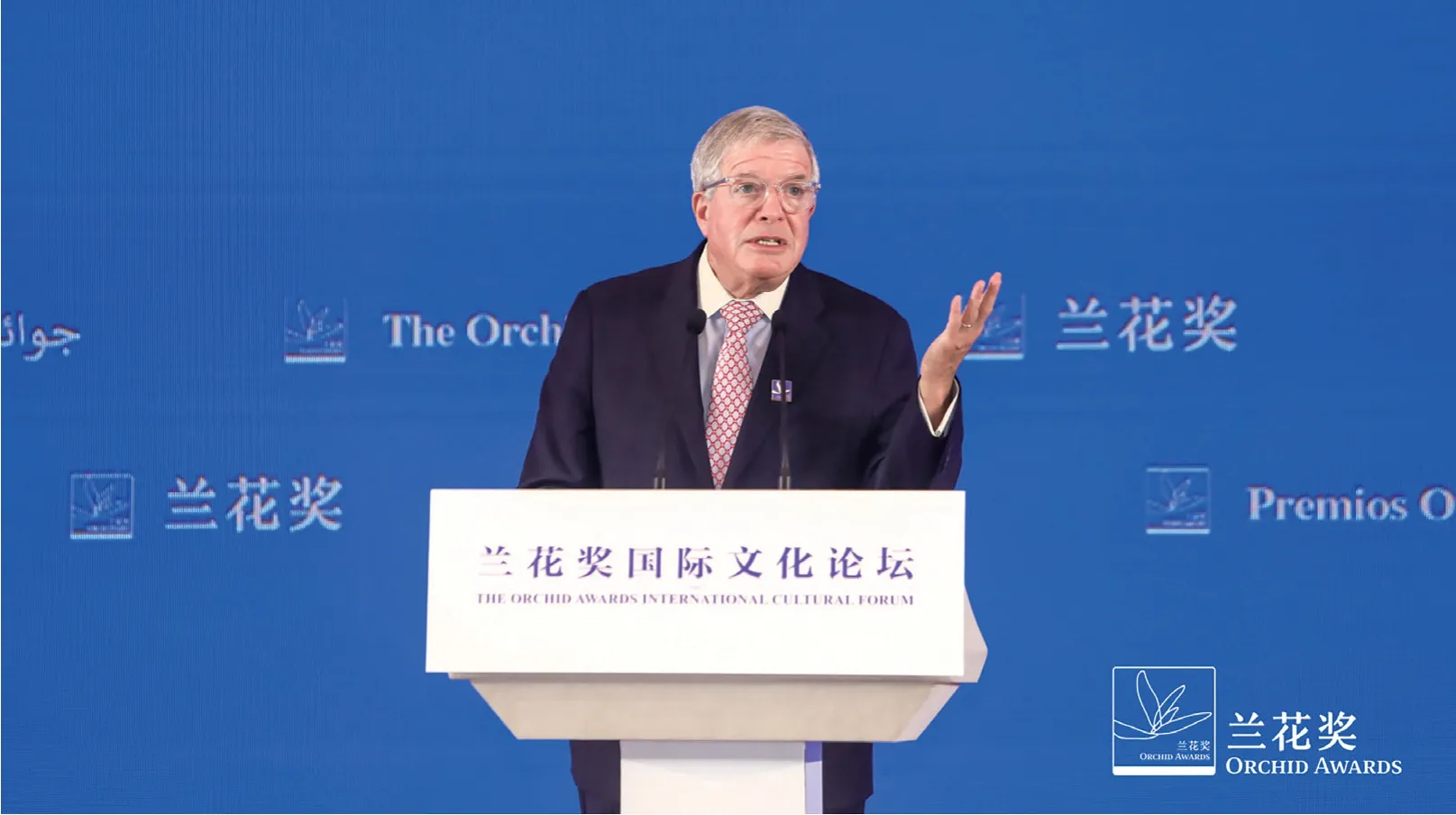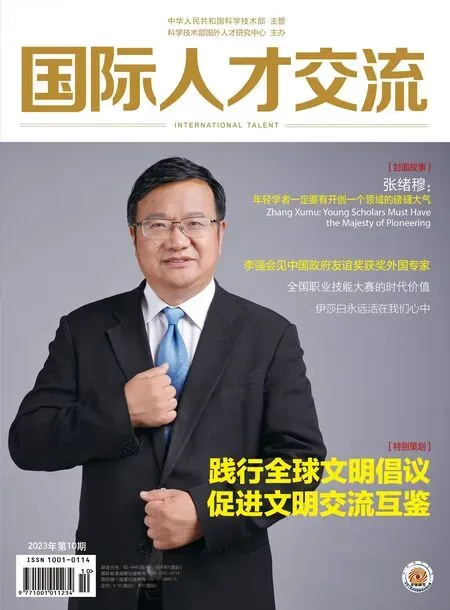Fostering a More Equitable and Empathetic Global Society
2023-11-17ByJosephWilliamPolisiUSA
By Joseph William Polisi (USA)
“Making the Garden of World Civilization Flourish,” is a high-minded concept that celebrates the common ground that all the world’s citizens stand upon. Whether American, Chinese, or any other nationality, we, as inhabitants of this flawed but beautiful planet, share common values that bind us together in a way that is both concrete and abstract.
We all wish for world peace. We hope to support an environment which guarantees clean air, adequate nourishment, and pure water for us all. We wish to eradicate poverty. We share a love of family, and we aspire that the next generation will grow as healthy and happy adults who will have a positive impact on society through their good work and deeds.
Suffice it to say that our world today does not provide the clear path of shared values that I have just noted, nor has the history of humankind ever truly overcome the hard-wired inclinations of our species to embrace territoriality or conflict. Such clear historical facts have, therefore, often turned us against the concept of peaceful coexistence.
I should note that my early university education was focused on international relations before I pursued my doctoral studies in music. In some ways, the juxtaposition of the cynicism that can be generated by the study of world history with the idealism and beauty of musical performance has created for me a conundrum that I have spent my life contemplating.
I suppose the one venture which I have undertaken that best manifests my belief in the potential of individuals from around the world to work together is the development of the Tianjin Juilliard School. The School’s creation, which is the Juilliard School’s only branch campus, began with exploratory meetings 12 years ago. We opened our stunning new building in the TEDA/Binhai area of Tianjin, providing pre-college and graduate music programs for students from China and around the world.
Since the opening of our School, we have had to deal with the highly disruptive manifestations of a pandemic, plus an complicated international environment. Nevertheless, our school has flourished, functioning as a type of catalyst in exploring new artistic and educational initiatives.As we celebrate the positive activities of the School,an unofficial mantra has surfaced referring to our successes amidst an environment of turmoil. I often look around and say, “Better to light one candle than to curse the darkness.” I think such an aphorism aptly applies to the precepts of the Orchid Award,and to the goals of the Global Civilization Initiative.
China has had a long history of engaging with other civilizations dating back to the journeys of the imperial envoy Zhang Qian to Western regions during the Han dynasty. The travels of the famous navigator Zheng He during the Ming dynasty also embody the concept of the ancient Chinese saying which is “the ocean is vast because it admits all rivers.” The ancient route along the Silk Road facilitated trade and the exchange of ideas between China and the civilizations to its west. And, of course, the teachings of Confucius, which have had global influence, emphasized morality, mutual learning, justice, kindness, and sincerity.
Moving to our current time, we have seen in the recent past how the promotion of cultural exchange and mutual learning through people-topeople exchanges and artistic collaborations have nurtured a sense of interconnectedness and common purpose, which one hopes can lead to peaceful coexistence. I have participated in these gatherings. I can remember the palpable sense of positive energy and optimism generated by these meetings, where individuals representing numerous countries and professional disciplines came together to get to know each other better. With such exchanges, countries can interact through a spirit of mutual respect and intellectual inquiry.

Joseph William Polisi speaks at the Orchid Awards International Cultural Forum
In many ways, as fellow citizens of this planet,we should strive to share a common “intellectual framework. We need to focus on skills such as listening, reasonableness, and humility, and we need to turn to more constructive ways to engage with those individuals with whom we disagree.”
Although I have spent most of my career in the arts, I still believe that I am a realist regarding world affairs. As the great conductor and composer Leonard Bernstein once said, “The arts will not stop wars,but they will allow people to understand each other better.” Geopolitical strategies will not be influenced by the performance of a Beethoven symphony, but, if we are given the time and the appropriate platforms,artists can help us to incrementally understand each other better and begin to create a sense of mutual respect that transcends political realities. In a true and real sense, great art transcends the mundane and the mediocre.
As an example of the power and beauty of music,I can think of no more impactful musical moment than the last act of Mozart’s operaMarriage of Figaro,where Countess Almaviva sings of the lost happiness that she realized in the early years of her marriage,presenting the great aria “Dove sono…” (Where are those beautiful moments). While lamenting the infidelity of her husband, Count Almaviva, she hopes that she can turn her husband from deception through her constancy and love for him.
As the opera ends, the Count asks for forgiveness, and the Countess grants it in the context of a sublime vocal chorus, singing “then let us all be happy with love, triumphant over evil.” The human compassion that is embodied through the Countess’s forgiveness reinforces in all of us a sense of hope for the future.
Now is the time to seize the moment and allow cultural exchanges to forge new avenues of human understanding. If the saga of humankind has taught us anything, it is that the profound achievements we have realized have often been reflected through the arts, and that these achievements have permeated the souls of millions of individuals around the world, opening their eyes to the beauty of the human spirit. As Dr. Henry Kissinger wrote, “In the end,history lauds not conflicts of societies but their reconciliations.”
As we attempt to “light” our individual“candles,” so to speak, may we collectively attempt to bring forward our shared humanity, fostering a more equitable and empathetic global society.
